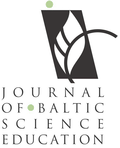THE IMPACT OF CARICATURE DRAWINGS IN THE ACQUISITION OF SCIENTIFIC CONCEPTS AND ATTITUDES OF 4TH GRADE STUDENTS FOR BASIC EDUCATION TOWARDS SCIENCE
| Title | THE IMPACT OF CARICATURE DRAWINGS IN THE ACQUISITION OF SCIENTIFIC CONCEPTS AND ATTITUDES OF 4TH GRADE STUDENTS FOR BASIC EDUCATION TOWARDS SCIENCE |
| Publication Type | Journal Article |
| Year of Publication | 2018 |
| Authors | Al-Araimi, S, Ambusaidi, A, Selim, M, Amri, MA |
| Journal | Journal of Baltic Science Education |
| Volume | 17 |
| Issue | 3 |
| Start Page | 414-427 |
| Pagination | Continuous |
| Date Published | June/2018 |
| Type of Article | Original article |
| ISSN | 1648-3898 |
| Other Numbers | E-ISSN 2538-7138 |
| Keywords | attitudes towards science, caricature drawings, scientific concepts |
| Abstract | This research aimed to examine the impact of caricature drawings in the acquisition of scientific concepts and attitudes of 4th grade students for basic education towards science. The sample of the research consisted of 162 students from 4th grade. |
| URL | http://oaji.net/articles/2017/987-1529508870.pdf |
| DOI | 10.33225/jbse/18.17.414 |
| Refereed Designation | Refereed |
| Full Text |
